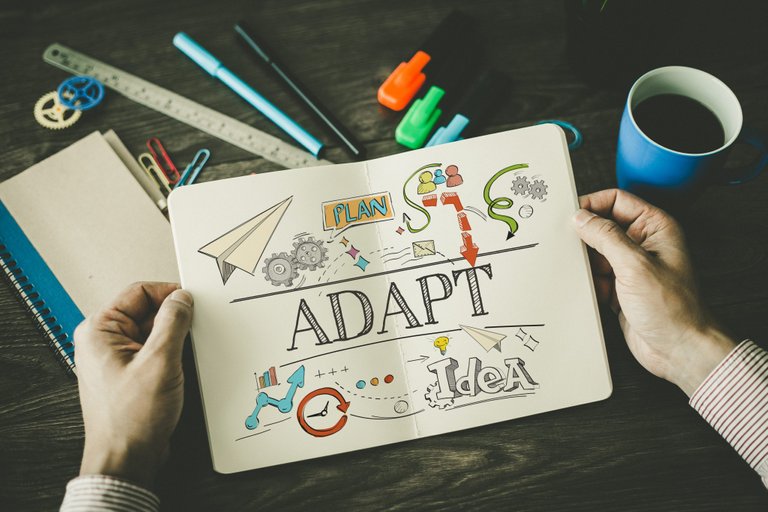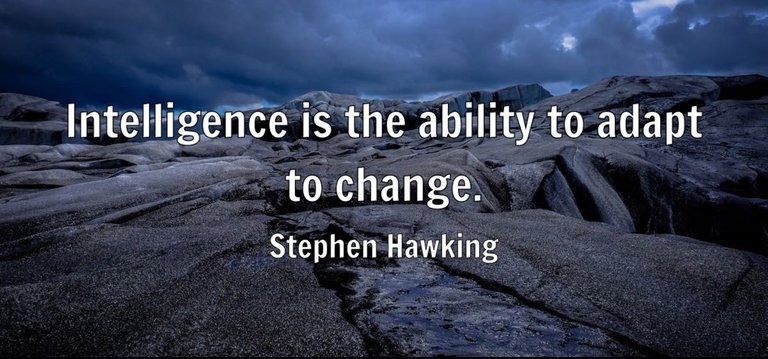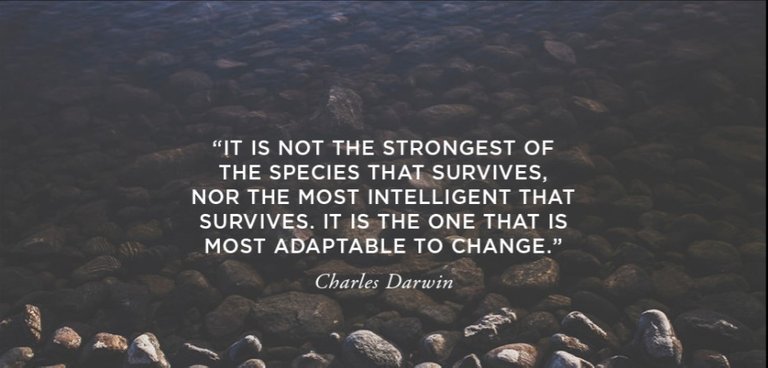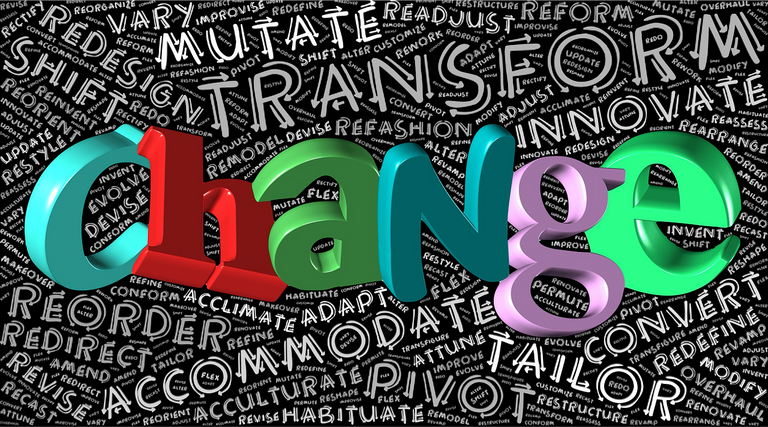.
Hello Friends,
I hope, you had a wonderful weekend. As a continuation of our discussion on critical thinking, as I promised every Monday, I will discuss a new topic. Today’s topic is ‘ADAPTABILITY’. Those who are new to this post can have a look at my previous post about critical thinking.

I've always been interested in change. In our lives, we are subjected to a great deal of it. Why do we react to it in such various ways, and how can some individuals simply absorb something others find difficult? We're losing our ability to adapt proactively; I feel that we're not devoting enough time and attention to preparing and developing ourselves. We're always moving from one change to the next, acting on instinct rather than plan.
What distinguishes some people from others in terms of adaptability! Thousands of stories of lives, professions, and breakthroughs, as well as insecurities and life experiences, were taken from theories and academic literature. I had naively assumed it would be simple, to begin with, but it was not. It's not always simple to respond to change in the manner we desire, and my exhaustion and guilt had worn down my adaptability, leaving me less able to manage my reaction.
We all struggle to adapt at times, and the survival techniques we've used in the past may or may not work in the future as we grow into leaders, parents, and mature human beings. We need to be more mindful of how we react to change most of the time. So that we don't bring ourselves worry or regret by acting in a way that is inconsistent with who we are. Also, we don't need to unconsciously teach others how to struggle.

We can't always control what happens to us or who we want to be, but we can control how we respond to it, and here is what I learned about how to do that. I discovered that adaptable individuals, who could respond to change in the way they wished, shared some qualities with those who struggled to adapt, and that these characteristics were minimal or absent in those who struggled to adapt.
P= Purpose
I=Inquisitiveness
R=Resilience and,
T=Threat
are what I call the adaptation equation. It will enable you to be more adaptive if you improve your competence in these areas.
What is the Purpose? Winston Churchill once said that “you will never reach your destination if you stop and throw stones at every dog that barks.” He was talking about purpose. Those with a strong purpose know that it’s their purpose that will help them to weather the storms without getting distracted or demotivated and it helps them to be more adaptable. Because it’s their purpose that guides them to make the right choices in the face of change.
Take Elon Musk as an example some people think he’s set up an electric car company but his purpose it’s a rid the world of carbon emissions. Today he chooses electric cars tomorrow it’s solar power or the hyperloop. The power of purpose is so strong, why do you think Tesla is worth more than the Ford Motor Company even though it’s never made a profit. And do you know your purpose? and whether your everyday habits and choices take you closer to it or further away?
Inquisitiveness is the inner child that asks 100 questions a day. It requires space and headroom and a certain mindset to constantly learn and grow. Dr. Carol Dweck will call it the growth mindset and these people they’re able to constantly scan the environment looking for the need to adapt in the future. This makes them more adaptable because all the powerful thinking inside this happened before the change hits them or before they decide to make a change.
Think about it, you know the more questions you ask the more you learn, the more you learn the more questions, you think of asking. It’s a reinforcing cycle so think about a problem differently, try a new solution, and ask a stupid question.
And then Resilience, which involved overcoming setbacks and reducing stress both for the individuals and for those around them. It’s been proven that the formation of a habit is not affected by falling off the wagon now and then. So that, you know the cake you ate while you’re on your diet or the outburst you had while you’re working on your self-control then normal then to be expected and it’s overcoming. These setbacks and learning from them which will help you to be more adaptable. So be honest with yourself and have the setbacks and changes that you’ve experienced. Have they made you settle for being off course or are you still on track to being whom you want to be?

Now, these first three characteristics had a positive correlation with adaptability. So, developing a high capability in these areas will help you to be more adaptable. But the fourth characteristic had a negative correlation with adaptability. A high level of Threat will hurt your adaptability overall, the aim here is to reduce it. We all have a threat response when we’re faced with a real or perceived danger, and this can be as subtle as aggressive body language or a different point of view, or a threat of looking stupid.
The effect on the brain is the same as being followed in a dark alley. To be highly adaptable you need to have a strong awareness of your threat response, what it looks like what it feels like what triggers it, and how best to manage it. So, here’s the equation, adaptability equals Purpose plus Inquisitiveness plus Resilience divided by the Threat to be highly adaptable and be able to respond to change how you want to develop your PIR to reduce your T.
Now what’s interesting about all these characteristics is their non-fixed characteristics. They’re not genetic they can be learned and developed over time. I realized that all people that we had studied and worked with who were adaptable had not just been adaptable, they had learned how to be adaptable. You see historically it was thought that the brain was a physiologically static organ it was created in childhood and now we’re just stuck with what we’ve got. And while it’s true the brain is much more plastic in the early years plasticity happens throughout life, we just may need a little bit more focus and persistence as we get older. We are meant to adapt.
The brain is also highly efficient, and this means that it will look for patterns to avoid us having to consciously think about the same things repeatedly. So, just like a river flowing down a well-worn riverbed the brain will take the easy route encouraging us to think in the same way and react in the same way creating automatic thinking habits and blind spots. It’s much easier to continue doing something we’ve always done than it is to stop. Unless we know this and make a conscious commitment to change, we all can learn, and we all can learn how to adapt. We must start.

Probably it will take a few days/months for a new habit on average to four, from today which takes to just past New Year’s Day to start today to be the person you want to be in the face of change. Don’t wait for a resolution to be someone new next year. Look at the adaptability equation, which areas do you need to focus on so that you can respond to change how you want to be the person that you want to be while you do develop your PIR, reduce your T, And encourage others to do the same.
.
Thank you



